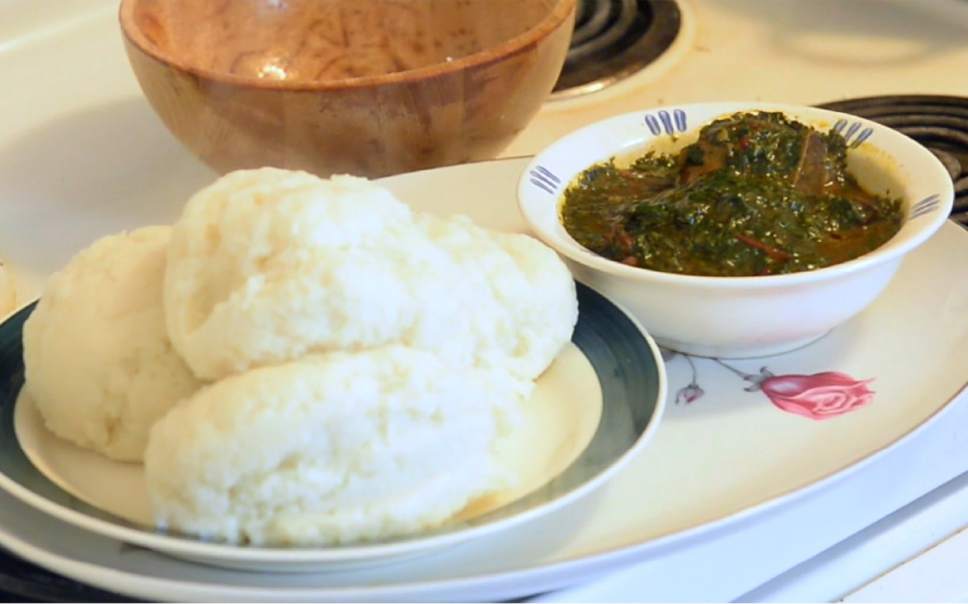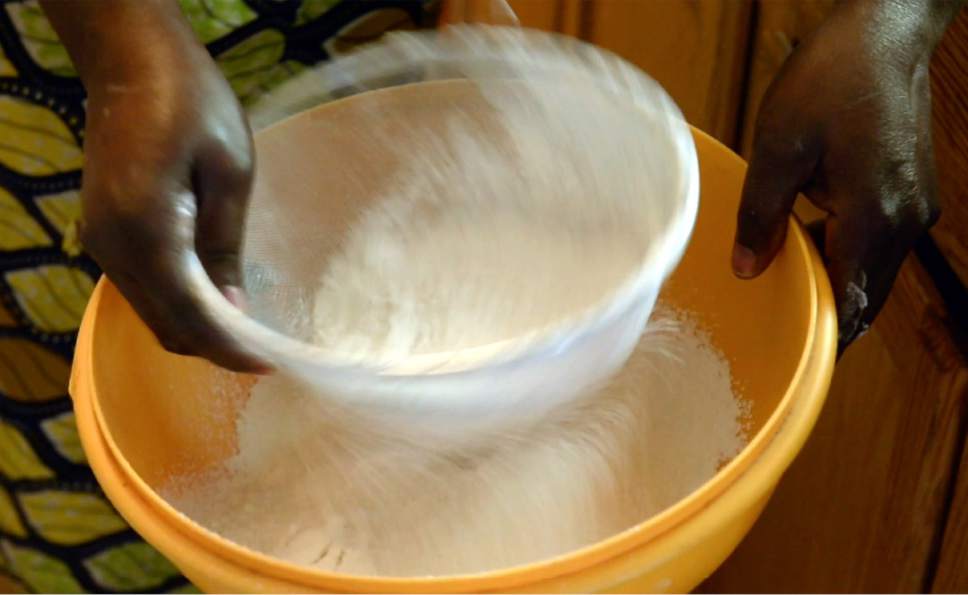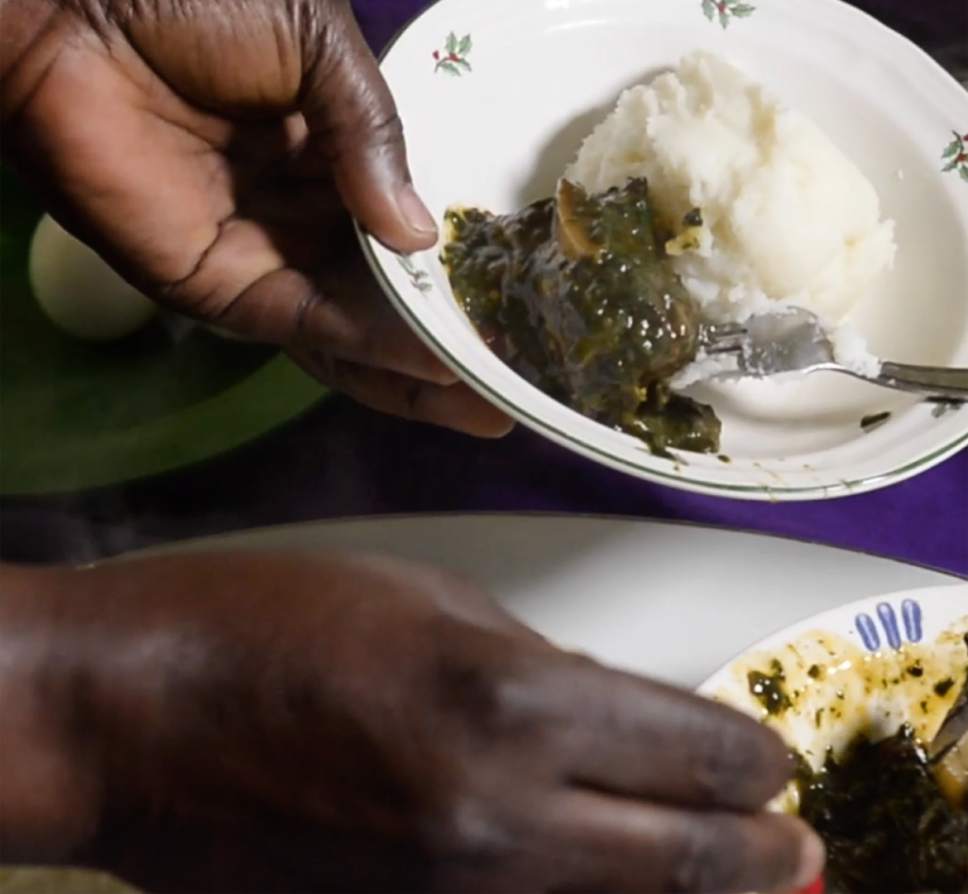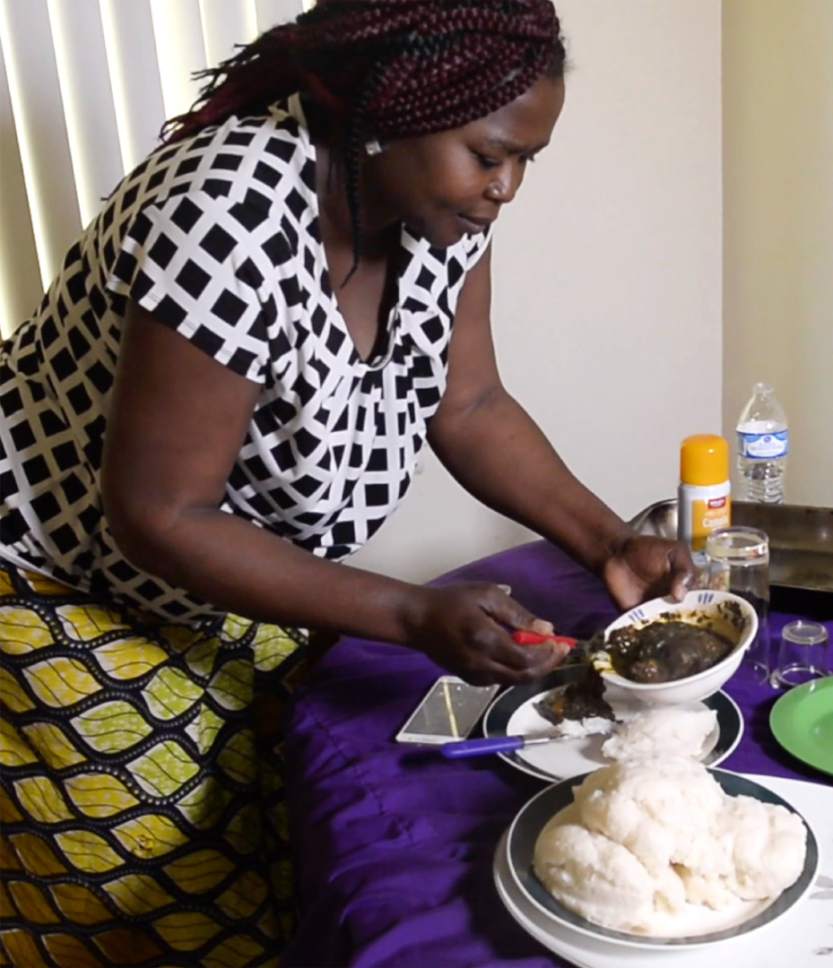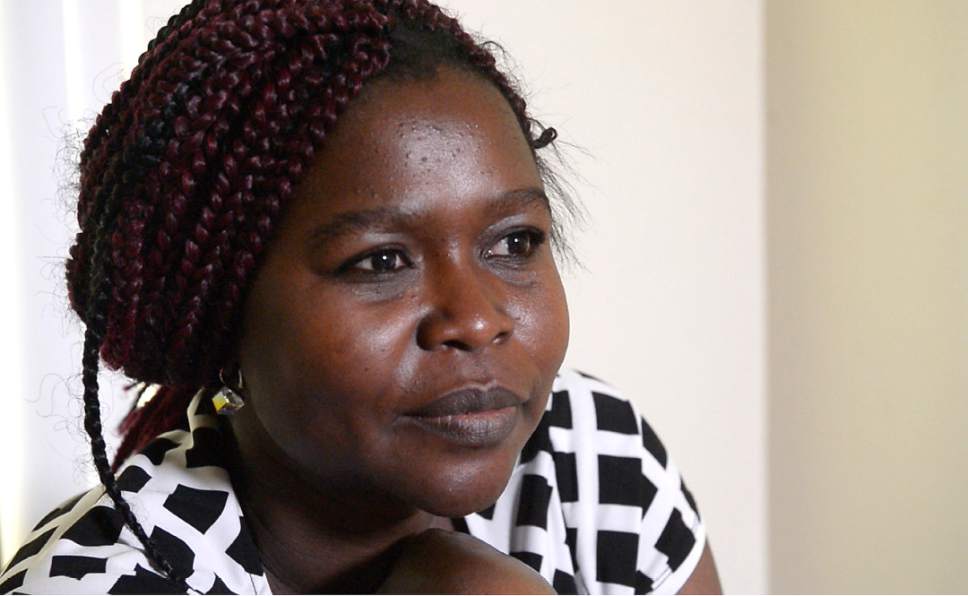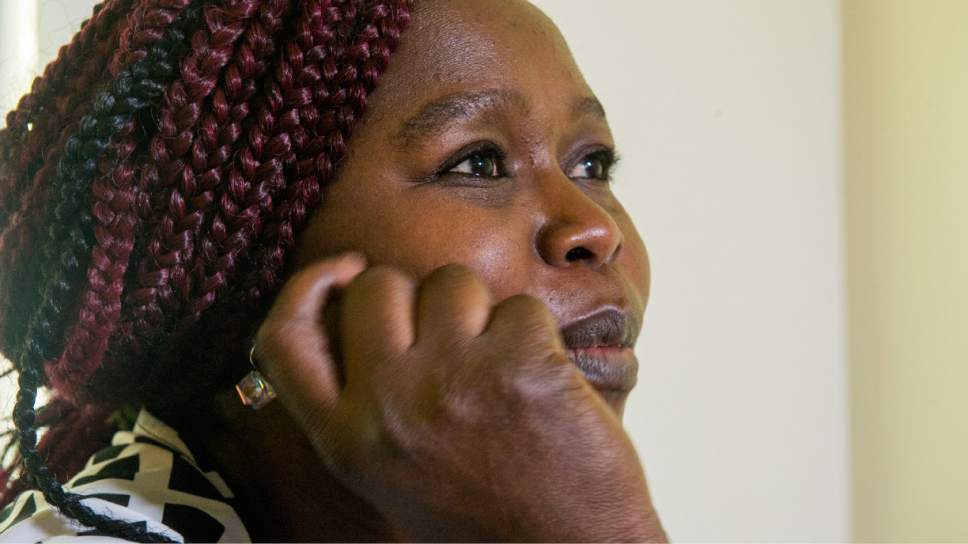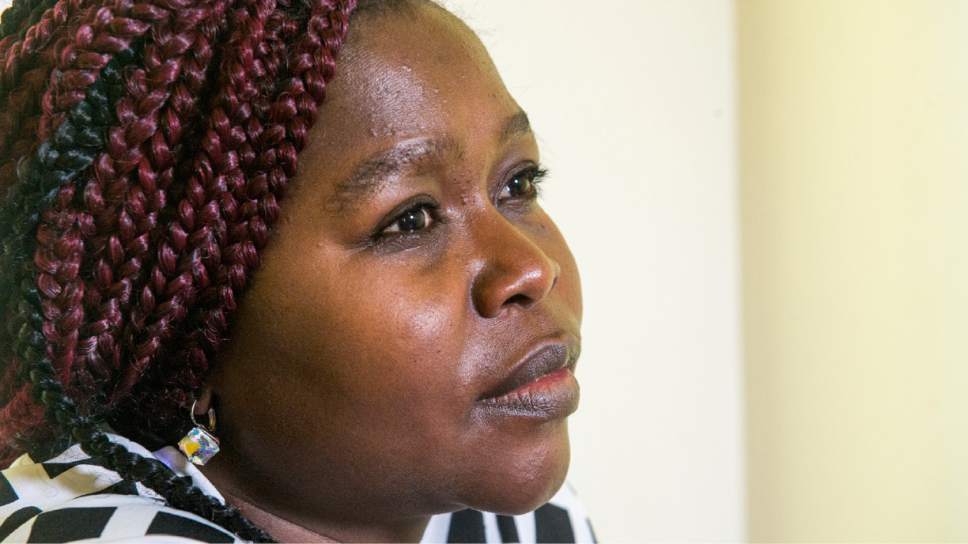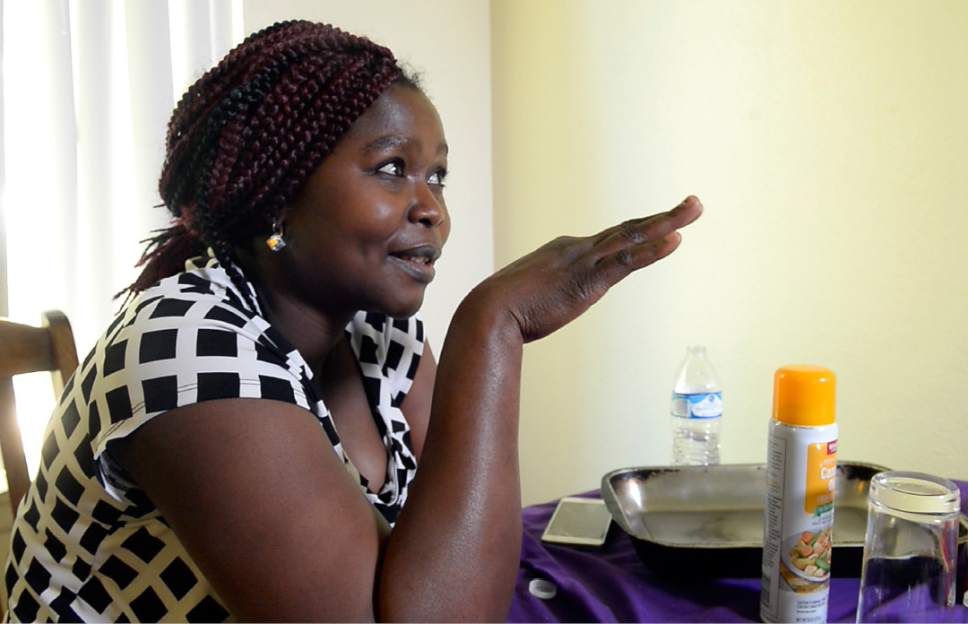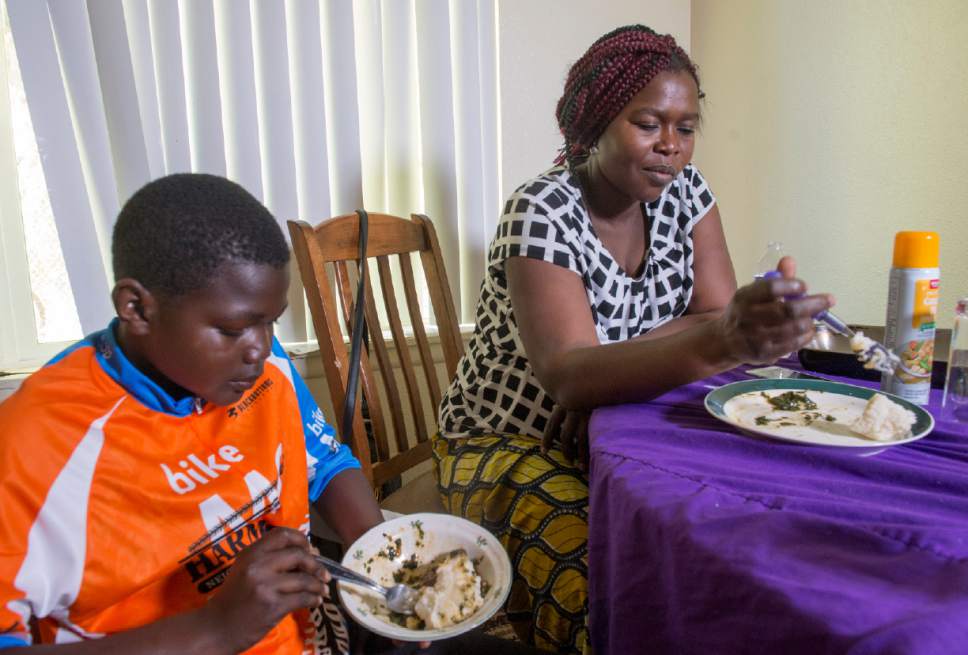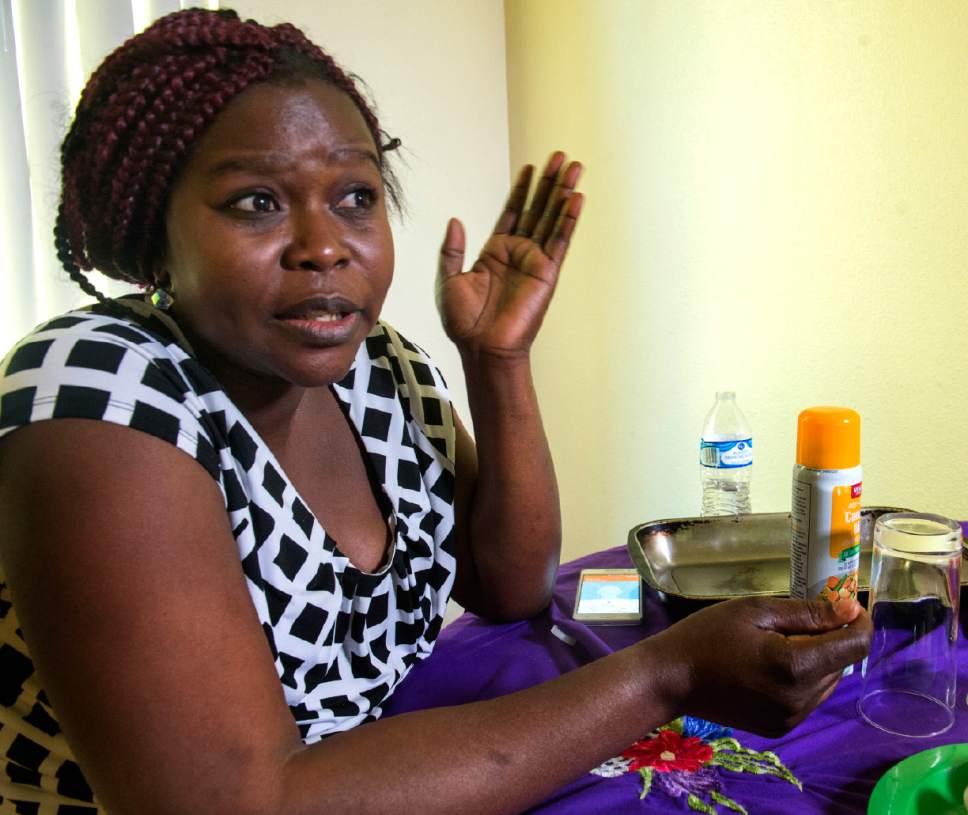This is an archived article that was published on sltrib.com in 2017, and information in the article may be outdated. It is provided only for personal research purposes and may not be reprinted.
Editor's note: When refugees immigrate to Utah, they arrive with little in the way of worldly goods. They do, however, bring their language, customs and recipes. In Refugee Kitchens, an ongoing series, The Salt Lake Tribune invited immigrants to cook dishes from their homelands as a window to their lives, as well as how they prepare food in a new culture. Refugees from Iraq, Central African Republic, Sudan, Burma and Syria discussed their lives as they prepared the food they love from the homes they may never see again.
In the Central African Republic, there are no frozen foods — everything is fresh, but not plentiful. There is just enough to go around.
Pelagei Ngakotou grew up in a small village outside the town of Bossangoa in a country known for its vast savannas, dense jungles and raging rivers that is, for many Americans, the stuff of National Geographic.
But the beautiful country has lately been known for persistent sectarian violence, which drove Ngakotou's family members from their home. She and her husband and three children had lived uncomplicated lives in an agrarian culture of subsistence living. It was peaceful without the anxieties of big cities, cellphones and TV. There, time is a rhythm. Days are defined by dawn and dusk; years by rainy and dry seasons.
That's reflected in Pelagei's calm demeanor and relaxed smile as she sifted cornmeal in her Salt Lake County kitchen and began to prepare fufu — a starchy staple eaten almost daily in her African home. Rice is rarely eaten there, she said, because it "is too much money."
Unlike in Africa, Pelagei now depends on frozen vegetables, frozen fish and frozen beef — all less expensive than the fresh produce and meat also found at the supermarket that most likely has traveled long distances to get there. Fish, beef and pork are a regular part of the diet where she comes from. But chicken, she explained, is not part of the agrarian culture there.
As she prepared the fufu, her children, Fortuna, 7, Constantine, 9, and Cedric, 12, breezed in and out of their apartment in Magna. Natacha, 16, is asleep upstairs despite the late afternoon hour. The Spartan housing complex provides plenty of lawn for neighborhood kids from a diversity of ethnicities who skate, kick soccer balls and turn cartwheels.
Pelagei is fluent in French and knows enough English to get by. Her children, by contrast, are completely bilingual. Their English has no hint of accent.
Busying herself in the small kitchen, Pelagei remembered her African home, where her father had some cows and pigs. Crops grew well in the fertile soil during the rainy season from April to September. By the end of the dry season, however, fruit and vegetables were hard to come by.
School was not an option. By age 7, Pelagei was helping her mother with chores and cooking for her four sisters and brother. In her village, she explained, cooking was done over wood flame.
It seems like a lifetime away, said the 37-year-old refugee, as she boiled water on an electric stove and then added it to a bowl of sifted cornmeal — stirring often. She whipped it for several minutes until the fufu took on the consistency and look of mashed potatoes.
Despite its significant natural resources, the Central African Republic is among the 10 poorest countries in the world.
Bounded by Sudan on the east, the Democratic Republic of Congo to the south and Cameroon to the west, it was granted independence from France in 1960. But not until 1993 did the country have multiparty democratic elections. Ange-Felix Patasse became president. He was ousted a decade later in a coup led by Francois Bozize.
War followed in 2004 in the country of 5 million as Muslim and Christian factions clashed. The fighting continues to this day.
"When the soldiers came, everybody ran or they kill you," Pelagei said. "Now my country is no good. Fighting, fighting and fighting. It's too bad."
About 850,000 people have been displaced, according to UNICEF. About 270,000 of them fled to Cameroon, another former French colony.
It became a regular occurrence when she would grab her children and run into the bush as soldiers stormed into the village, Pelagei recalled. They would hide until the patrols left.
In 2009, the fighting was so intense that the young family set out on the dangerous trek to Cameroon, dodging militias along the way.
In the confusion, Pelagei, who was pregnant, and her kids became separated from her husband. He did not arrive in the refugee camp in Cameroon. After several weeks, they believed he was dead.
There, she soon had a fourth child, Fortuna, and applied with the United Nations for refugee status.
Eventually, the U.N. High Commissioner for Refugees resettled Pelagei and her children in Salt Lake City in 2014. It was only then that she learned her husband was alive. But when he finally did immigrate to Utah the following year, it became apparent their marriage was irrevocably broken.
Pelagei's family was sponsored by the Catholic Community Services and also receives support from Women of the World (womenofworld.org), a Salt Lake City-based nonprofit that seeks to help refugees adapt to their new culture.
Shortly after her arrival, Pelagei joined The Church of Jesus Christ of Latter-day Saints. She now works 30 hours each week at Deseret Industries, an LDS Church-owned thrift store.
She also qualifies for day care assistance through the Utah Department of Workforce Services, she explained as she opened a frozen bag of okra to heat in the microwave. It will be part of a stew that includes tomatoes, garlic, oil and beef and will accompany the fufu in a traditional meal from her country.
Her kids like African dishes, Constantine, the 9-year-old, confirmed. They also crave foods they have found in the U.S.; his favorite is lasagna. Fortuna likes pizza and chicken nuggets.
The fufu tastes a lot like mashed potatoes, and the zesty okra stew is a perfect complement. It is a simple but tasty meal. Constantine and Fortuna, like average American kids, are quick to get their share.
Pelagei was pregnant with her fifth child during her Salt Lake Tribune interview. No matter, she appears unworried about the future. "I have had four children already," she said. "I don't think this will be any different."
In late May, she gave birth — it's a boy.
Pelagei said she wants what's best for her kids in their new country. She hopes they graduate from high school and get good jobs.
The Salt Lake Valley is a long way from the Central African Republic. The complexities of life here may be hard to grasp for someone from the other side of the world. But Pelagei seems to take it all in stride. Life can be challenging, but in Utah, it's a lot safer.


